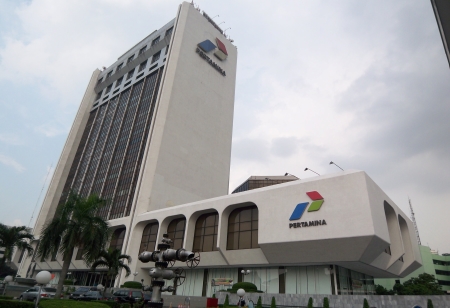
Pertamina, Indonesia's state energy firm, is redesigning its refinery expansion plans to meet shifting demands from the transition to renewable energy, according to its chief executive.
It's 2015 refinery development plan calls for the company to upgrade four of its largest refineries and construct two new ones, nearly doubling its processing capacity to more than 1.5 million barrels per day.
PT Kilang Pertamina Internasional, or KPI, Pertamina's refinery sub-holding, is readjusting the scope, product mix, and timeline of its investment for the Plaju, Dumai, and Cilacap refineries, according to its chief executive Taufik Adityawarman said in an interview.
"Previously, we had a long list of capacity increases, and we were focusing on volume," he said of the 2015 plan.
"Now, with a new business environment, adoption of electric vehicles and our own commitment to energy transition, we have to be adaptive."
Last year, Indonesia pledged a more aggressive reduction in carbon emissions of 31.89% on its own, or 43.2% with international support, by 2030. It also intends to achieve net-zero emissions by 2060.
According to a 2021 presentation by Pertamina, upgrades to Dumai, Plaju, and Cilacap would cost a total of $6.2 billion, with completion expected in 2027.
Taufik added that the new investment plan could result in increased production of renewable fuels such as diesel fuel and jet fuel made from vegetable oil.
The Cilacap plant already has a 3,000 bpd capacity for producing palm oil fuel, of which Indonesia is the world's largest producer, and that capacity is expected to double by 2026.
Taufik stated that KPI intends to finalise their new investment strategy in the first half of this year.
Pertamina finished the first phase of its Balongan refinery upgrade in 2022, increasing capacity from 125,000 bpd to 150,000 bpd.
It plans to complete the first phase of its Balikpapan refinery upgrade in 2024, increasing processing capacity from 260,000 bpd to 360,000 bpd. This year, KPI plans to invest $1.5 billion in capital projects, the majority of which will benefit the Balikpapan refinery.
We use cookies to ensure you get the best experience on our website. Read more...